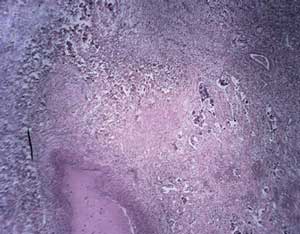Lung Cancer Introduction

What is lung cancer?
Lung cancer is cancer that begins in the lungs. It is the second most common cancer in both men and women, as well as the leading cause of cancer death in both men and women.
There are two main types of lung cancer. They are non-small cell lung cancer and small cell lung cancer. A doctor called a pathologist uses a microscope to look at the cancer cells collected during your biopsy to tell which type of cancer you have. These two types of lung cancer grow and spread in different ways. Therefore, they are treated differently. Non-small cell lung cancer usually grows and spreads more slowly than small cell lung cancer.
Non-small cell lung cancer (NSCLC)
About 85% to 90% of lung cancers are non-small cell. There are three main types of NSCLC. While there are slight differences between them, they tend to have a similar prognosis (outlook) and are generally treated the same way:
Small cell lung cancer (SCLC)
Only about 10% to 15% of people diagnosed with lung cancer have small cell lung cancer. Small cell lung cancer is also called oat cell cancer. It grows and spreads more quickly than non-small cell lung cancer. It often spreads to other parts of the body at an early stage. This type of cancer is almost always associated with smokers. If you don't smoke, you aren't likely to get small cell lung cancer.
For More Information
For more information on how to quit smoking or schedule lung cancer screenings, contact Nancy Sayegh-Rooney, R.N., Pulmonary Nurse Navigator at Richmond University Medical Center, 718-818-2391.
Free screenings are available for at-risk individuals, please call for additional information.
© 2024 The StayWell Company, LLC. All rights reserved. This information is not intended as a substitute for professional medical care. Always follow your healthcare provider's instructions.